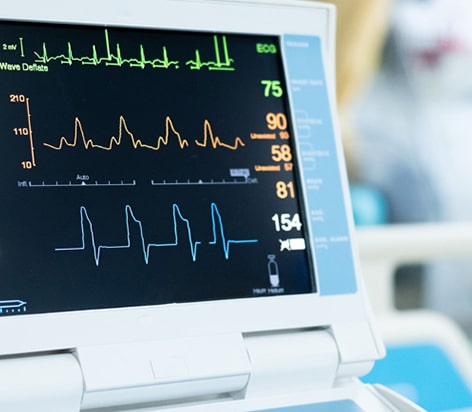
Patients with heart arrhythmia have an irregular heartbeat. The irregular heartbeat may include tachycardia (fast heartbeat) and bradycardia (slow heartbeat). Types of heart rhythm diseases include atrial flutter, atrial fibrillation, ventricular tachycardia, supraventricular tachycardia, and ventricular fibrillation.